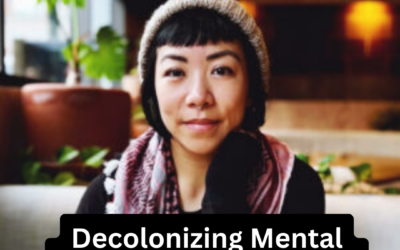Podcast: Play in new window | Download (Duration: 26:35 — 36.5MB)
Subscribe: Apple Podcasts | Spotify | Amazon Music
Unpack the science behind the Polyvagal theory, with psychotherapists and co-hosts of this podcast, Ann Kelley, Patty Olwell and Sue Marriott as they explore how our nervous system appraises safety and danger. Then they discuss how to harness the knowledge and make it usable in real life.
What Is Polyvagal Theory?
Stephen Porges developed polyvagal theory, which explains our nervous system’s response to stress or danger. It describes a three part hierarchical system. The first, the ventral vagal is described in the podcast as a safety system or green zone. The second is activation. This is the sympathetic nervous system getting us ready for fight or flight. In the podcast described as an activated red zone. The third system is the dorsal vagal, which is immobilization or freeze. In the podcast described as an immobilized red zone.
How Does Polyvagal Theory Work?
The theory describes how we assess stress or danger based on cues in the environment. If we begin to sense stress our sympathetic or activation system begins to kick in. Then we attempt to engage our ventral vegal or social engagement system (the green zone). If that doesn’t work, the threat persists or intensifies we employ our activation system. We get ready to take action. Our heart rate increases to prepare us for fight or flight. Then if the threat is too large or we can’t escape the system of last resort, the dorsal vegal takes over.
How Understanding Polyvagal Theory Can Help Me Regulate Stress
Today most of us are not chasing saber-toothed tigers through the jungle. So the stressors and dangers we face are often interpersonal. We can often because of our own personal histories misread the environmental cues. If we walk into a party and don’t see a familiar face our sympathetic nervous system can get activated. If we understand from polyvagal theory that we have a social engagement system and that engaging it will calm us down, we then have strategies that we can use. We can look for a friendly face and start a conversation. We can find someone we know at the party and make contact. This understanding gives us choices when we want to calm ourselves or help our children, partners or friends calm their nervous systems.
Important Concepts
Vagus Nerve – 10th cranial nerve and part of the parasympathetic nervous system. Has two branches and acts as a brake on the sympathetic nervous system.
Ventral Vagal – The newer myelinated branch of the vagus that developed in mammals. Controls the social engagement system.
Dorsal Vagal- More primitive unmyelinated branch of the vagus nerve. Acts as a Sympathetic Nervous System – part of the autonomic nervous system that controls activation.
Parasympathetic Nervous System – part of the autonomic nervous system that inhibits the sympathetic nervous system
Neuroception – Porges term that describes how our nervous system assesses whether people or places are safe, dangerous or life threatening
RESOURCES:
Additional resources for this episode:
- Stephen W. Porges -The Polyvagal Theory: Neurophysiological Foundations of Emotions, Attachment, Communication, and Self-regulation














